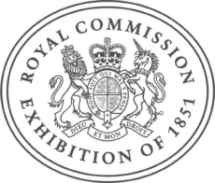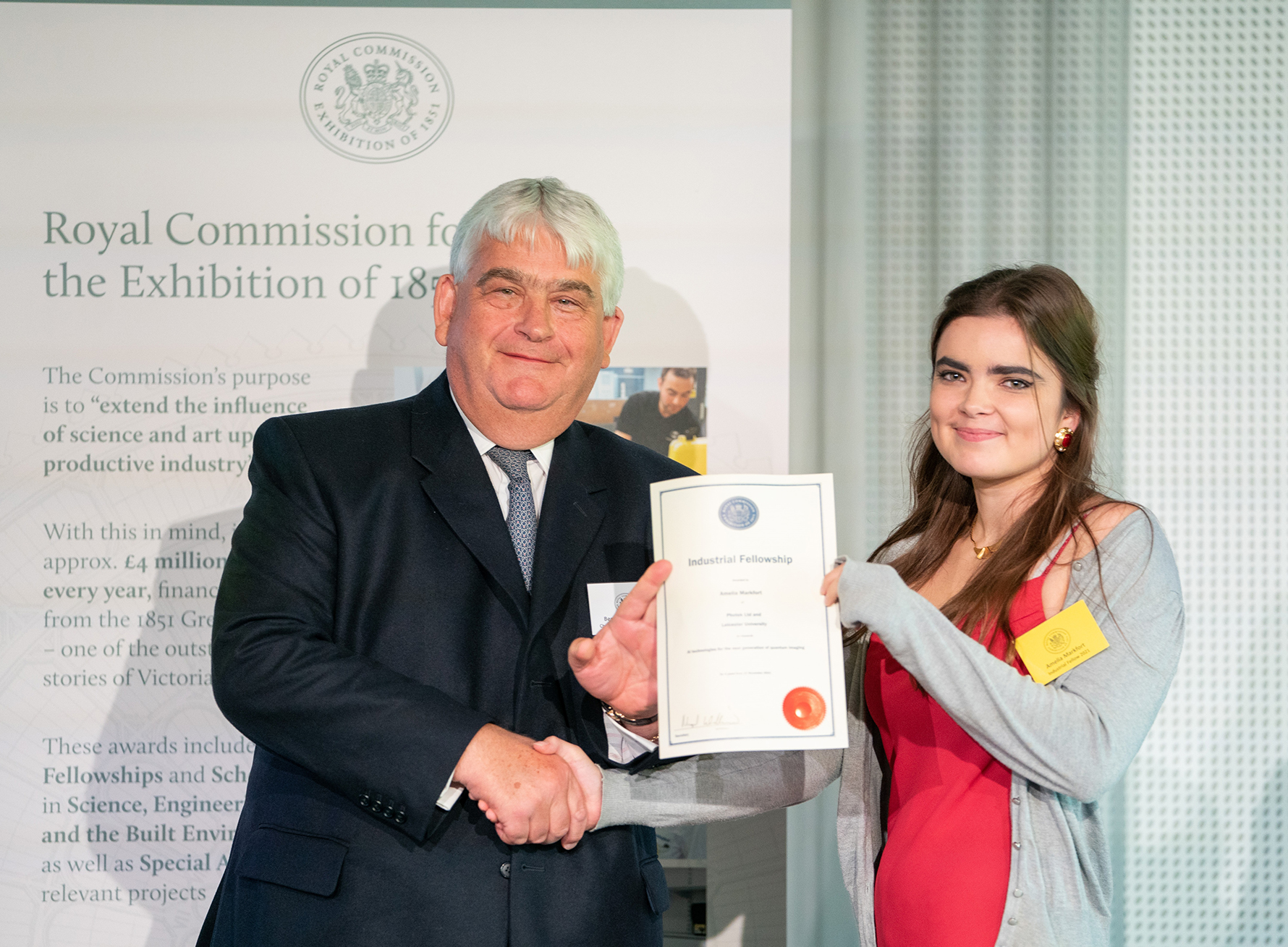Industrial Fellowship by the Royal Commission
Congratulations to our young colleague Amelia Markfort who was awarded a prestigious Industrial Fellowship by the Royal Commission for the Exhibition of 1851
Amelia is a KTP Research Associate at Photek where she has worked since October 2020. She holds a Master’s degree in Physics from the University of Sussex where she has previously worked as a laboratory assistant teacher for their International summer school.
AI technologies for the next generation of quantum imaging
As part of her PhD project Amelia is investigating how machine learning can be used to process the data collected from single photon imaging detectors, a type of quantum imaging instrument. Quantum imaging using photons allows the visualisation of organic and inorganic samples at a far higher resolution than previously possible. At the moment, the technique generates vastly more information than can be processed by current data analysis systems, which limits the performance of the detector technology. Machine learning is becoming an attractive option for handling big data across scientific fields, but usually requires extreme amounts of training data. By developing software that reduces the need for this large initial data input, greater learnings can be achieved in areas where input data is scarce or hard to come by.
Amelia’s work, which will be supervised by academics from the Schools of Computing and Mathematical Sciences and Physics and Astronomy, hopes to challenge the prevailing consensus that more accurate machine learning must be based on larger initial datasets, by demonstrating its success at analysing quantum imaging data without the need for immense datasets upfront.
Commercialising novel detector systems is vital for the success of any new developments in scientific instrumentation, and through this project, Amelia will show how combining the detector with machine learning software solutions will create a robust product in the field with numerous applications across industries.
Amelia commented “I’m very excited about the impact of this work in unlocking new insights in scientific fields where large datasets are unrealistic or unattainable. This is especially the case in improving the capabilities of space science instrumentation that is so vital for helping us learn more about our universe.”
More about the Royal Commission for the Exhibition of 1851
Talented young innovators from across the United Kingdom have been awarded prestigious Industrial Fellowships by the Royal Commission for the Exhibition of 1851, to develop solutions to some of society’s biggest challenges, from COVID-19 to climate change.
Set up by Prince Albert to organise the Great Exhibition of 1851 and extended in perpetuity to invest the profits in UK innovation, the Commission has been supporting promising research ever since. For 170 years it has provided crucial support to advance R&D and help to make UK industry more competitive internationally.
Through the Industrial Fellowships, the Commission brings together industry and academia to create commercially viable research and solutions for the mutual benefit of all. Fellows conduct their doctoral research with a company in their chosen industry, bringing academic expertise and approaches to a commercial operation. This enables students to investigate new ways of thinking about traditional problems, and forge exciting career opportunities. The programme also equips companies with cutting-edge research without the premium price tag and strengthens links between universities and commercial organisations.
This year’s Fellows will be developing new techniques for cancer diagnosis and treatment, bioreactors that can turn wastewater into energy, drugs to fight future human coronaviruses, and AI to help map pathways in the brain
UK Industry receives cash infusion from Prince Albert’s Royal Commission to tackle global challenges
- £100k funding awarded to 13 young innovators to bring academia and industry together to face COVID-19, climate change and more
- Projects selected include revolutionary breast cancer detection, future coronavirus drugs, waste processing bioreactors and brain-mapping artificial intelligence
- Applications for the 2022 Industrial Fellowships are now open
Industrial Fellowships provide funding of up to £100,000, covering salary contributions, university fees, and costs for doctoral studies for up to 3 years of research. The output of such an investment is estimated at £2 million a year in intellectual property, developing crucial new technologies and scientific advances that advance research fields and British industrial players. During the Fellowship, students are provided with support from academic and industrial supervisors.
Bernard Taylor, Chairman of the Royal Commission for the Exhibition of 1851, said: “The Industrial Fellowship programme is a crucial link between British research institutions and businesses, with a specific focus on producing tangible, commercial benefits for all. This year is one of the largest ever cohorts of Industrial Fellows, representing some of the best and brightest researchers in British industry. Their work will bring together the new ideas of academia and the agility of industry, to make a significant impact in a wide range of fields, including biotechnology, artificial intelligence and telecommunications.”
Photography courtesy of James Gifford-Mead Photography and also the Royal Commission for the Exhibition of 1851.



